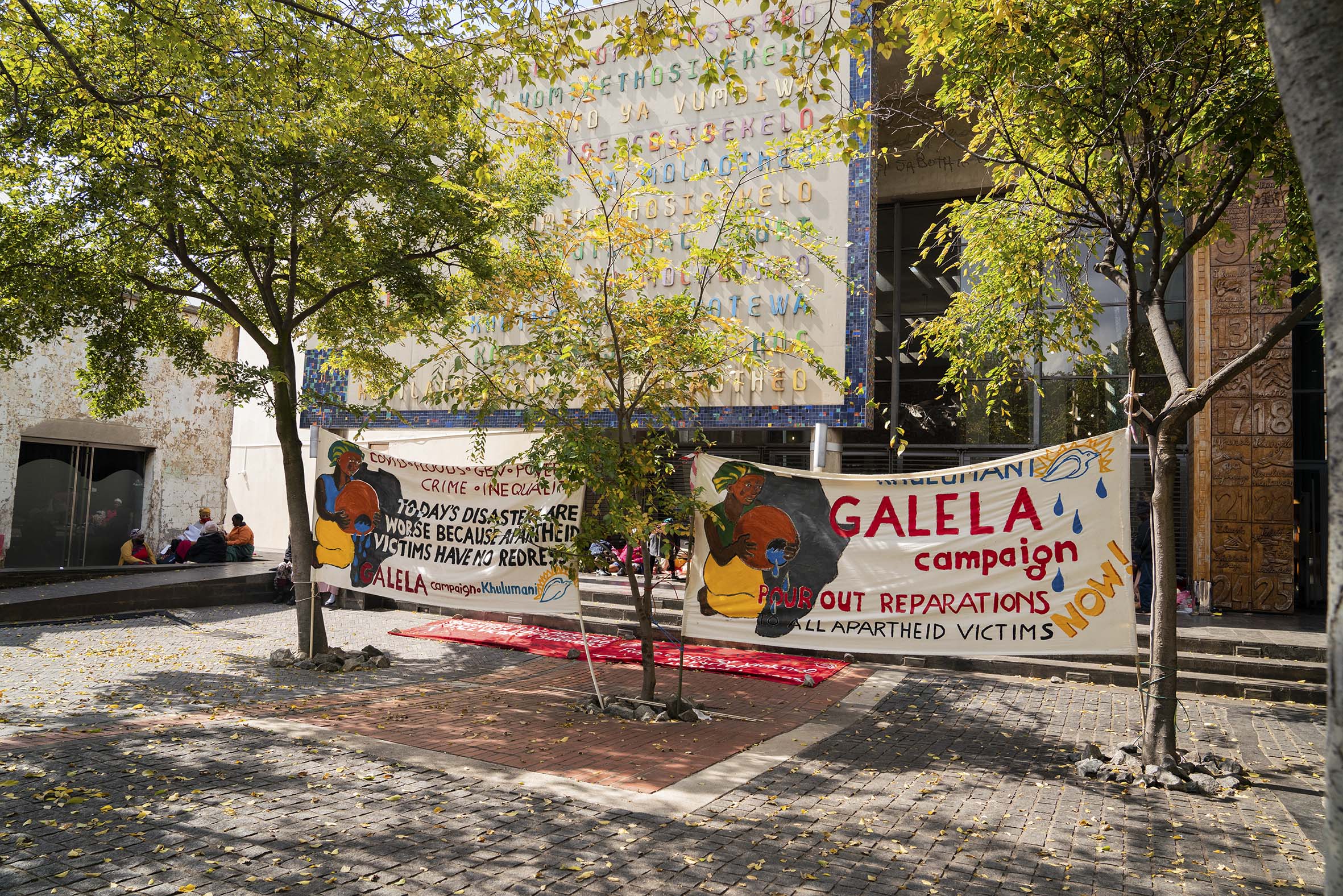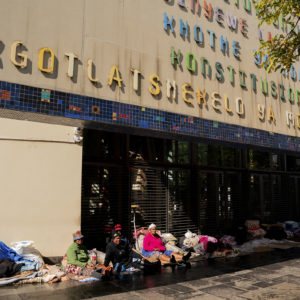Failed reparations a ‘betrayal’, says leading expert
More than two decades after she helped draft the TRC’s recommendations, human rights lawyer Yasmin Sooka throws her support behind apartheid survivors getting compensation.
Author:
6 May 2022

On 5 May, more than 70 apartheid survivors demanding reparations for the crimes they suffered at the hands of white minority rule were joined on the steps of the Constitutional Court by Yasmin Sooka, a former member of South Africa’s Truth and Reconciliation Commission (TRC). The mostly elderly survivors have occupied the steps of the famous court in Braamfontein, Johannesburg, for more than a week, calling for a meeting with Minister of Justice and Correctional Services Ronald Lamola or President Cyril Ramaphosa. Their food stocks have been depleted, many have fallen ill and at least one has been hospitalised during their wait.
“It pains my heart to see you all having to protest for what is rightfully yours,” Sooka, a leading transitional justice expert who chairs the United Nations Commission on Human Rights in South Sudan, told the activists.
Related article:
She added that the continued failure of Lamola’s department to fully pay out reparations owed to survivors of apartheid crimes constitutes “a betrayal and absolute negation” of the promises of the TRC. The failure, she said, was rooted in “the fact that the people who made the ultimate sacrifice have been forgotten” as well as “an utter contempt for poor people in our country”.
Sooka urged Lamola to start a dialogue with the activists about opening up the currently closed list of TRC reparation beneficiaries. While the minister has continued to refuse to take questions, his spokesperson, Chrispin Phiri, said the department had paid “all the beneficiaries identified by the TRC” who could be traced and “that the TRC supplied to the government in [its final] report”.
“The closed list was what was proposed and presented by the TRC, of which Ms Sooka was a commissioner. One would expect that she really understands and is able to express the nuances of this issue,” Phiri added.
Narrow interpretation
Tshepo Madlingozi, who heads the Centre for Applied Legal Studies at the University of the Witwatersrand, said the state had “narrowly” interpreted the TRC’s recommendation of reparations for victims of gross violations of human rights. That only the survivors who managed to make their cases to the TRC – about 17 000 people – qualified for reparations was “politically problematic in a country of millions” where colonial violence could be traced back centuries, he said. African legal principles, added Madlingozi, demand that “an injustice is an injustice until it is resolved”.
TRC reparations are paid out of the President’s Fund, which was established in 2005. Sooka claimed that repeated efforts have had to be made to stop the government from “plundering the money”. At one point, attempts were made to divert funds set aside for reparations to bail out bankrupt municipalities, she said.
Responding to Sooka, Phiri said “the statement that the President’s Fund has been plundered by such an esteemed member of society is most regrettable”. He added that Lamola would meet with the activists, who are members of non-governmental organisation Khulumani Support Group, on 9 May, nearly two weeks after their occupation at the court began.

A visibly angry Sooka said: “South Africa was birthed on the blood and sweat of the poor people who populate our country, but this complete abandonment of apartheid victims does make you wonder if the TRC and South Africa’s human rights community led these people down a false road.”
For the time being, the long wait does not appear to have dampened the activists’ resolve. “We are not begging here. We are demanding,” said Nomarussia Bonase, Khulumani’s Gauteng provincial chairperson.
Whatever road the activists are on, it looks set to continue at Constitutional Hill. “We are sleeping on concrete floors with empty stomachs,” said Bonase. “But we will not leave.”

